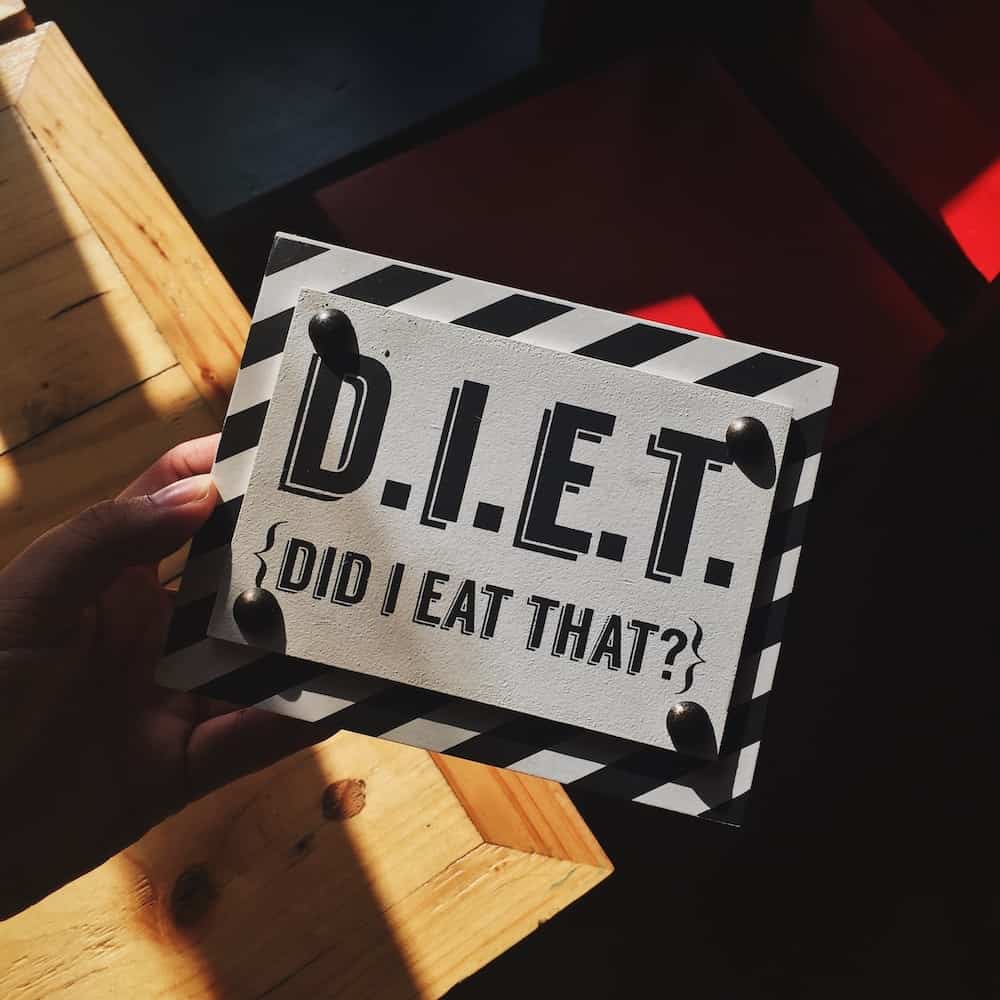Why do you feel that you need significantly more vitamin C than other people?
The underlying answer: we all have different genes.
Therefore, not every person can metabolize all foods equally.
What may increase the performance of one person, can cause another discomfort.
Here you can get all the information about what Nutrigenomics is.
Also, you will learn which options can individually increase your performance.

What Is Personalized Nutrition?
Personalized nutrition is an innovative food trend, which opens up new doors for self-optimization as a biohacker.
Have you ever noticed that after a healthy meal, you do not actually feel as fit as you hoped for?
Surprisingly, at the same time, you see your colleague in full power in the meeting.
New diets have been on the market for many years, promising to become lean, muscular and fit.
Low Fat, Low Carb, High Fat, High Carb – for one they can help build muscle, while for the other the success simply does not want to come.
This is simply because no one is similar to the other.
Everyone has a completely individual DNA, which he inherits from his parents.
The genetic material plays an important role in how food is metabolized by your body.
This aspect is interesting in Nutrigenomics.
Once you understand how your body’s system works, you can eat personalized food that balances you.
With the knowledge gained, it will be easy for you to skip the foods that rob your energy.
Instead, you can add more of the nutrients that really boost your performance.
In addition, based on your genes, you can find out which vitamins or minerals you need to eat to avoid being deficient.
The idea of personalized nutrition as a real motivation for a healthier lifestyle was explored in the Food4Me study.
The participants followed the personalized guidelines more strictly than general dietary recommendations.
That alone could help many people realize their potential even more.
The more individualized the diet, the better.
Sounds logical and is effective.
That’s why an individual meal plan is indeed not the exception for many US professional sports teams, but standard.
Take-home message #1: Because of your DNA, your environment, your lifestyle and your gut flora you metabolize differently compared to any other human.
Therefore, Nutrigenomics can be the key to more power and energy.
Why Are We All Different?
No one is like the other and that has different reasons:
- Unique Genes: Every human being is unique because of his genes.
Each of us has our own DNA, in which all hereditary information is stored. These are difficult to change.
Next to your eye color and body size, they determine how healthy you are, for example.
Of course, lifestyle and diet also play a significant role when it comes to what you can get out of yourself.
In the meantime, research has recognized the connection between DNA and nutrition.
By means of a study on athletes, it was clearly demonstrated that every human metabolizes caffeine differently.
Some people can process caffeine faster due to special liver enzymes.
For others, the degradation is slower and they can not fall asleep in the evening, even though they have drunk the last cup of coffee in the early afternoon.
It works similarly with nutrients such as vitamins and minerals.
Due to genetic factors, about 28 percent of the population has a much higher vitamin C requirement.
Therefore, generalizations about a daily requirement should be regarded as a guideline, as each of us has very specific information.
Based on a gene analysis, a personalized nutrient requirement can be set here.
Similarly, there are people who can metabolize carbohydrates better, and others who are absolute protein metabolizers.
2. Influence of the environment: In addition to your genes, your environment also has an impact on which foods you can best utilize to optimize your performance.
In the heat of Africa, your metabolism will react to food in a completely different way than in colder Europe.
In the city, you are exposed to more environmental toxins than in the countryside.
Environmental toxins can also affect your epigenetics.
3. Individual lifestyle: Above all, your very own lifestyle affects your performance.
One likes to get up early because he’s more productive at the start of the day, the other prefers a later time.
4. Gut flora: An often neglected, but insanely crucial role also plays the gut flora.
It is an extremely complex system that consists of countless microorganisms.
These ensure that you digest all the food supplied and also utilize the nutrients it contains.
If there is a malfunction in this area of the body, you may feel powerless and below performance despite a healthy diet consisting of lots of vegetables and proteins.
There are of course a lot of other factors that make you even more different from other people in addition to your unique genetics.
As you can see, how should a nutritional recommendation apply to all people in this uniqueness?
Nutrigenomics specifically personalizes the nutritional plan to the individual, therefore, it can be the step towards a better implementation of food into energy.
In the future, if you get told about the new Super Diet for everyone, you know that this is absolute bullshit by now.
They do not exist.
The key to more performance is the individualization of your diet.

What Are Epigenetics?
Often we hear from office athletes: “There I can not do anything for, these are my genes.”
Do you think you have no influence on your genes?
Recent studies show that you can do more than you think.
Specifically, various factors can influence gene expression.
This is called epigenetics.
Epigenetics deals with everything that happens around the genes and influences them.
In principle, our genetics, the genome with our DNA, is the hardware of our body.
The epigenome, on the other hand, is like software that makes our hardware usable.
It lies like a switch over the genes and can turn genes on and off when properly controlled from the outside.
In the case of nutrition, you can influence how your body reacts by switching on nutrients and even turning individual genes on and off.
Certain nutrients may make sure that certain sequences of your genome are read or not.
This sounds unbelievable but is the current state of science and has an extra research area with nutrigenomics.
What Is Nutrigenomic?
Nutrigenomics is addressing the question:
How do epigenetic nutrients control our genes?
There is a subdivision into methyl donors and nutrigenomic modulators.
Methyl donors
Without methyl groups, no energy – in many ways.
Among others, they form creatine and phosphatidylcholine for our cell membrane, provide for the formation and removal of neurotransmitters and hormones, support the DNA during regeneration and push the immune system.
These are “Epi-nutrients” that provide us with the basis for methyl groups.
- Methionine (contained in sesame, fish, paprika, spinach, Brazil nuts)
- Folate (in leafy vegetables, sunflower seeds, liver)
- Vitamin B12 (in meat, liver, seafood, milk)
- Vitamin B6 (in meat, whole grains, vegetables, nuts)
- SAMe (S-adenosylmethionine, formed in the body from methionine)
- Choline (in egg yolk, liver, soy, boiled beef, chicken, veal, turkey)
- Betaine (in wheat, spinach, seafood, sugar beets)
Nutrigenomic Modulators
The Epi-nutrients that directly affect our genes are the so-called nutrigenomic modulators.
They feed our genetic hard drive with information, or they can delete it. These include
- Sulforaphane (e.g. in broccoli, cabbage, sprouts)
- Tea polyphenols (e.g. in green tea)
- Resveratrol (for example from red wine, food supplements)
- Genistein (e.g. in soy)
- Butyrate (produced by the fermentation of fiber by intestinal bacteria)
- Diallyl sulfide (DADS) (e.g. in garlic)
However, there are Epi toxins that we do not want to have in our body.
They also act directly on the genes and your hormone system, but they change it to the negative.
You can massively throttle your performance. Some of these EPI toxins include
- Environmental toxins
- BPA
- phthalates
- pesticides
- fungicides
- herbicides
- heavy metals
- chemicals
- drugs
- nicotine
Take-Home-Message #2: Nutrigenomics explains how and which substances can influence your genes. It is divided into two major groups of substances: the methyl donors and nutrigenomic modulators.
Nutrigenetics: Your Genes Influence How You Respond To Food
The field of nutrigenetics deals with the influence of your genes on how your body absorbs certain nutrients.
The above-mentioned EPI nutrients are not absorbed equally well by everyone.
Responsible for this are changes in a special DNA sequence, the Single Nucleotide Polymorphisms (SNPs).
These SNPs occur in different genes and, depending on how they are used, have an effect on how the nutrients from food are utilized.
If the SNP occurs in the MTHFR gene, the EPI nutrient folate cannot be sufficiently converted into methylfolate.
That can be a 30 percent to 70 percent reduction, depending on how your DNA is made up of your parent’s DNA.
If you have been diagnosed with this SNP by a genetic test, this means for you: Eat more leafy vegetables for more power.
If the SNP occurs in the PEMT gene, however, phosphatidylcholine can only be produced to a limited extent.
The result: Your cell protection does not work optimally and your cell membrane can become permeable and absorb harmful substances more easily.
The consequence: You need more choline from eggs or beef, for instance.
As you can see, it can be very helpful to know your genes better and have a genetic test done.
There are several laboratories that have already specialized in a genetic metabolic analysis of food.
Take-home message #3: Epigenetics, nutrigenomics, and nutrigenetics are concerned with the function and influence of genes. Because they can be controlled by the right nutrients.

How You Can Test Your DNA
In addition to metabolomics and proteomics, that is an analysis of the metabolism and the protein composition of your cells, you can have your genomics analyzed.
To make a genetic test for your diet, you can contact laboratories specializing in the subject.
You then send the necessary “tool”, with which you can take a saliva sample and send it back.
The institution of your choice allows you to pinpoint what nutrients are missing by using small samples (such as capillary blood from the finger, saliva, urine, and respiratory gas samples).
Each genetic test works a little different, but most of the instructions are very simple and can be easily done by anyone at home.
The evaluation of the results usually takes several weeks.
After DNA analysis, you can tailor your diet to your genetic profile. Personalized foods may be your key to more energy and increased performance.
Providers and Possibilities
Blood group diet, metabolic balance or a supplementation based on a blood test are the forms of personalized nutrition that are commonly known.
Long-term insulin levels, omega-3 to omega-6 ratios, vitamin D levels or serotonin levels have been used for several years to become more efficient.
For your personalized diet, however, knowing your DNA is not enough.
The complete package of genetics, epigenetics and your lifestyle must be incorporated into a perfect diet as a whole.
In addition, science in the field of gene analysis is still in its infancy. Through these tests, a tendency can be demonstrated in which direction the diet should go.
A 100 percent statement cannot be made yet.
Researchers at the University of North Carolina claim that there is still a lot of demand in the field for more reliable results that can be passed on to consumers.
Epigenetics is still very difficult to analyze because of its individual basis.
Privacy and transparency also scare off many to make a genetic test.
European providers are therefore to be preferred in terms of data security.
Another disadvantage is the still very high cost, which will be reduced in the future, once the personalized diet has established.
Take-home message #4: A genetic test can be easily made at home and sent to the lab. However, it should always be done through a trusted provider.
How Can I Use My DNA Test Result For My Diet?
The DNA test determines your individual metabolic predispositions.
In practice, this means that you know how efficiently your organism converts the three macronutrients into carbohydrates, fats, and proteins, and how much is stored as reserves.
In the next step, you can consult a nutrition expert to pinpoint what you should eat from each macronutrient so that you have enough energy for your daily tasks, and not store excess energy in the form of fat.
Your body is in balance, which is essential to your performance.
It is particularly exciting that you can optimally adapt the number of macronutrients to different situations through the results of the DNA test.
For intensive sports training sessions or competitions, for example, you need more energy than for your office life.
This will allow you to customize exactly which nutrients provide you with the most efficient energy for which phase.
Final Thought: Nutrigenomics
Our genes influence how nutrients are absorbed and processed by the body.
On the other hand, genes can also be influenced by the right nutrients.
Which these are varies from person to person – and this is where personalized nutrition begins.
If you take a closer look at your genes through a genetic test, you will learn which foods push your performance up and which ones you can metabolize less well.
Have you already tried to set a diet according to Nutrigenomics? What other ways of dieting are working for you?
Tell me more about your personal experience in the comments below!
As always, thanks for reading folks!
Cheers,
Janik




